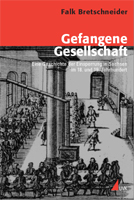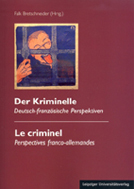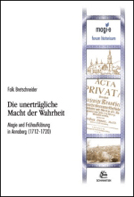CfP : Cultures of Control, Moral Panics, and Broken Windows? Towards a Crime and Criminal Justice History of the Second Half of the 20th Century
NIAS - Netherlands Institute for Advanced Studies in the Humanities and Social Sciences GERN – Groupe Européen de Recherche sur les Normativités GiwK – Gesellschaft für interdisziplinäre wissenschaftliche Kriminologie e.V.
CALL FOR PAPERS
Cultures of Control, Moral Panics, and Broken Windows? Towards a Crime and Criminal Justice History of the Second Half of the 20th Century
Date: Saturday, June 18th, 2011
Location: Netherlands Institute for Advanced Studies in the Humanities and Social Sciences (NIAS), Wassenaar (Netherlands)
Organisation: Klaus Weinhauer (Bielefeld/Wassenaar), Herbert Reinke (Berlin/Wuppertal), Margo De Koster (Louvain-La-Neuve/Amsterdam)
The history of crime and criminal justice has made some major strides forward in the last decades. These studies, however, have rarely explored the 20th century. In order to give this area of research a much needed impulse, a workshop will be held on June 18, 2011 at the NIAS in Wassenaar (Netherlands). To focus attention the workshop will concentrate on the second half of the 20th century. There are at least two reasons to focus on this time period:
The workshop languages will be English and French.
The conference will be supported financially by the NIAS, by GERN and by the GIWK.
CALL FOR PAPERS
Cultures of Control, Moral Panics, and Broken Windows? Towards a Crime and Criminal Justice History of the Second Half of the 20th Century
Date: Saturday, June 18th, 2011
Location: Netherlands Institute for Advanced Studies in the Humanities and Social Sciences (NIAS), Wassenaar (Netherlands)
Organisation: Klaus Weinhauer (Bielefeld/Wassenaar), Herbert Reinke (Berlin/Wuppertal), Margo De Koster (Louvain-La-Neuve/Amsterdam)
The history of crime and criminal justice has made some major strides forward in the last decades. These studies, however, have rarely explored the 20th century. In order to give this area of research a much needed impulse, a workshop will be held on June 18, 2011 at the NIAS in Wassenaar (Netherlands). To focus attention the workshop will concentrate on the second half of the 20th century. There are at least two reasons to focus on this time period:
- Firstly, because the second half of the 20th century is a period of multiple social and cultural changes. Especially the 1970s are often seen as a transitional phase from modernity to post-modernity or as a period in which the erosion of the welfare state began. Although new historical works have begun to analyze the decades from the 1950s onwards by integrating social science perspectives, crime and criminal justice aspects, these are still fringe topics in this context. Integrating crime and criminal justice history perspectives in this may enhance these current innovative and interdisciplinary projects and debates.
- Secondly, because there are important methodological, conceptual and theoretical issues at stake in analyzing the second half of the 20th century. While a number of master narratives have been used to describe and analyze pre-20th century crime, such as 'modernization', 'urbanization', 'vol au violence' etc., a fundamental debate on the conceptual and theoretical tools to be applied for writing a 20th century crime and criminal justice history has not been initiated yet. Interestingly, ‘culture of control’ is now widely used as a master narrative for describing changes of crime and crime control during a transitional phase which started somewhere in the 1970s. Moreover, there are two approaches which come close to be used as catch all concepts to explain nearly all aspects of rising crime rates and the growing public awareness of public order issues in the second half of the 20th century: The concept of media induced ‘moral panics’ and the ‘broken window’ thesis. Only very rarely, however, are these findings put into a historical context, which should take into consideration that both approaches have their roots in the 1970s.
- Current methodological debates relevant for / relating to a crime and criminal justice history of the second half of the 20th century.
- Efforts to put key sociological or criminological theories on crime into historical perspectives. This could include the debate about an analytically useful periodisation and about the role of comparative, transnational and transfer studies in this area.
- Crime and criminal justice related aspects of social life in urban spaces (urban violence included).
- Youth crime / juvenile delinquency.
The workshop languages will be English and French.
The conference will be supported financially by the NIAS, by GERN and by the GIWK.
falkbret - 16. Feb, 11:48



